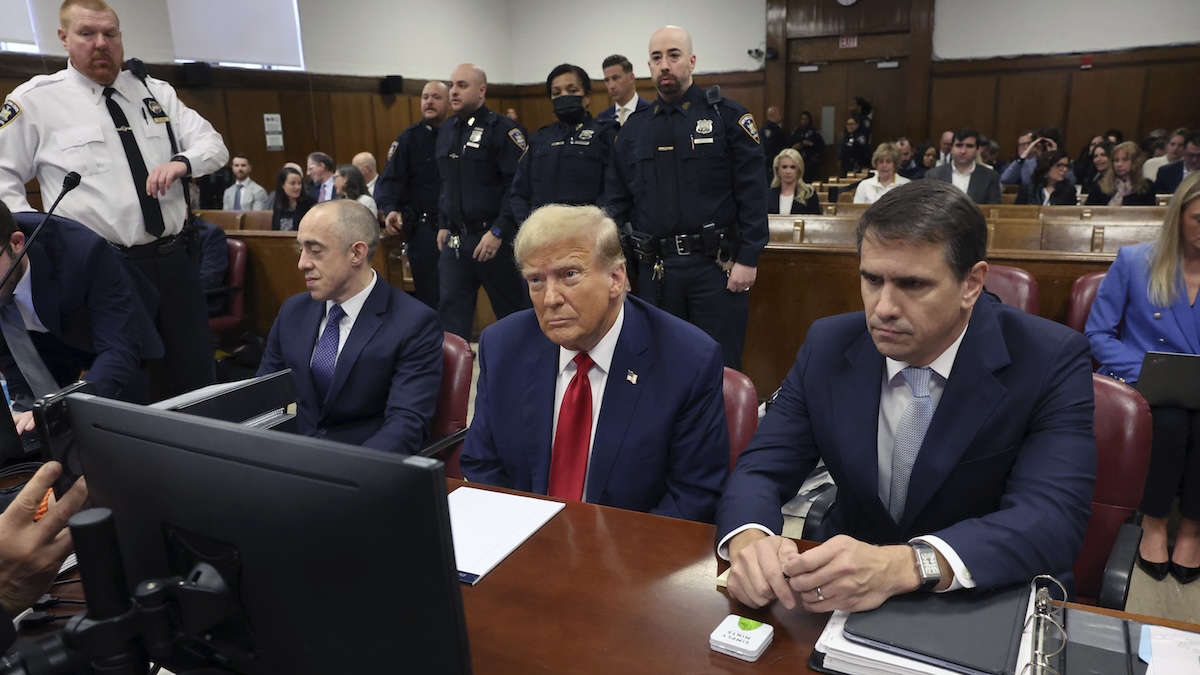Turkey said Wednesday it is increasing tariffs on some U.S. products like cars, alcohol, and coal — a move that is unlikely to have much economic impact but highlights the deteriorating relations with the U.S. in a feud that has already helped trigger a currency crisis.
The Turkish government said tariffs on American cars will be doubled to 120 percent while those on alcoholic drinks will be hiked by the same rate to 140 percent. Overall, the duties will amount to $533 million, a relatively small sum meant as retaliation for U.S. President Donald Trump's recent decision to double tariffs on Turkish steel and aluminum.
Washington has imposed financial sanctions on two Turkish ministers and doubled steel and aluminum tariffs on Turkey, as Trump tries to secure the release of Andrew Brunson, a 50-year-old American pastor being tried in Turkey on espionage and terrorism-related charges.
The tariffs also come a day after President Recep Tayyip Erdogan said Turkey would boycott U.S. electronic goods, singling out iPhones. Though it was unclear how the boycott would be enforced or encouraged.
On Wednesday, a court rejected an appeal for Brunson's release from detention and for a travel ban against him to be lifted, the state-run Anadolu Agency reported. A higher court however, was scheduled to review the appeal, the agency said.
Although he was released to home detention, Brunson faces a prison sentence of up to 35 years if he is convicted on both counts at the end of his ongoing trial.
The evangelical pastor, who is originally from Black Mountain, North Carolina, has lived in Turkey for 23 years and led the Izmir Resurrection Church.
Politics
Beyond the bluster of the two world leaders, the spat between the NATO allies has exacerbated a financial storm in Turkey, and hurt stocks in the U.S. as well. International investors have been put off by the country's high levels of foreign debt and Erdogan's refusal to allow the central bank to raise interest rates to support the currency, as experts say it should.
The Dow Jones industrial average dropped about 300 points on concerns about the Turkish currency crisis Wednesday, CNBC reported.
The currency drop is particularly painful for Turkey because it has accumulated a high debt in foreign currencies.
The Turkish lira has dropped to a series of record lows in recent weeks, having fallen 37 percent so far this year. It recovered a bit, by 5 percent to around 6.05 lira per dollar Wednesday, after the government took steps to shore up the currency by reducing the daily limit in bank foreign currency swap transactions.
On Wednesday, Turkish officials said Qatar had pledged $15 billion of direct investments for Turkey, in a bid to help Turkey's economy. The officials said Qatar's Sheikh Tamin bin Hamad Al Thani pledged to "quickly implement" the investment package during a meeting with Erdogan in Ankara. The officials from Erdogan's office provided the information on condition of anonymity in line with regulations.
Presidential spokesman Ibrahim Kalin later confirmed the pledge on Twitter, saying: "Turkish-Qatari relations are based on solid foundations of true friendship and solidarity."
Also helping the Turkish currency were moves by Turkey to gain favor with European countries.
It decided to release two Greek soldiers from prison on Tuesday. On Wednesday, Turkey then freed Amnesty International's honorary chairman for Turkey, Taner Kilic, from prison pending the outcome of his trial on terror charges. And Erdogan held a phone call with German Chancellor Angela Merkel and planned to speak this week also with France's Emmanuel Macron.
Investors seemed to focus on this and underlying economic problems over the exchange of tariffs with the U.S., which analysts said was unlikely to cause serious pain.
Ozgur Unluhisarcikli, director of the German Marshall Fund's Ankara office, noted that Turkey buys just 0.5 percent of all U.S. exports and most of that is civilian aircraft and weapons.
"This is just a symbolic gesture," said Ozgur Unluhisarcikli, director of the German Marshall Fund's Ankara office. He said "So anything other than weapons purchases... would not hurt the United States."
It was unclear, meanwhile, whether the boycott of American electronics would be enforced in any way.
Apple has 22 percent of the smartphone market in Turkey, where 11.4 million units were sold last year, according to Ramazan Yavuz, research manager at IDC consultancy company.
Although preference for Apple products is strong, their already high prices are curbing demand, Yavuz said adding that the boycott "is expected to reduce Apple's performance in the country in the upcoming quarters."
Attention will turn Thursday to an address by the finance minister to foreign investors for clues on any change in economic policy.
Investors are looking for substantive economic policy changes by Erdogan — namely the acceptance of higher interest rates — whereas the president has so far reacted mainly by blaming foreign powers, particularly the United States, which he says is waging an "economic war."



